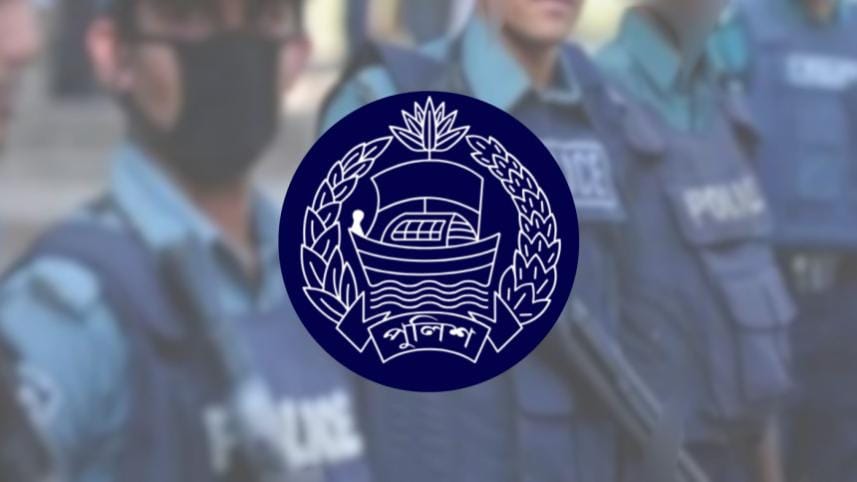DCs pushing for greater control over police

At least two DCs have sent proposals to the cabinet division ahead of the Deputy Commissioners' (DC) Conference today seeking full control over superintendents of police (SP) and officers-in-charge (OC).
Currently, DCs and Upazila Nirbahi Officers (UNO) head the law-and-order committees at the district and upazila levels, but they do not have authority over the annual confidential reports (ACR) of SPs and OCs.
Until 1977, this power was vested in the DCs. Despite multiple attempts to reclaim this authority over the years, no government has reinstated it.
"This is the right time to establish DCs' control over SPs and OCs in field administration," said a top administrative official on the condition of anonymity.
Political governments tend to divide power strategically to keep both DCs and SPs under their influence. However, an interim government can implement such decisions more easily, he said.
While DCs at the district level and UNOs at the upazila level are responsible for law and order, they lack official control over law enforcement agencies, said the Satkhira DC in his proposal. This often makes it difficult to implement decisions effectively.
"To address this issue, the ACRs of law enforcement officials should be placed under the control of the DCs and UNOs," he said.
Similarly, the Gaibandha DC emphasised the need for police performance evaluation by the district magistrate.
"As the district magistrate, the DC is the head of the District Law-and-Order Committee and is accountable for maintaining law and order. Therefore, an assessment of police activities by the district magistrate is necessary."
Such an evaluation would enhance the transparency, accountability, and public welfare orientation of the police force, he added.
It is not yet confirmed whether the proposals will be finalised in the relevant session of the upcoming conference, The Daily Star has learnt from cabinet division officials with knowledge of the matter.
Among the 1,200-odd proposals submitted by DCs, 354 will be discussed in the three-day conference, which will cost about Tk 1.73 crore. The conference will be inaugurated by Chief Adviser Muhammad Yunus at the Shapla Hall of the Chief Adviser's Office and the remaining sessions will take place at the Osmani Memorial Auditorium in the capital.
Even if the proposals are not included in the written agenda, the DCs may still raise them verbally. Particularly, the matter could come up during open discussions with the chief adviser.
In the elections held under the Awami League government, the DCs were often blamed for irregularities, a former DC said.
"But in reality, it was the police who stuffed the ballot boxes following instructions from the ruling party -- the DCs had little role in that process. If SPs and OCs are placed under the authority of DCs and UNOs, then holding DCs accountable for election-related misconduct would be justified," he added.
The Daily Star also spoke with at least four current and former DCs, all of whom agreed that SPs and OCs should be under the control of DCs and UNOs.
They believe the change would improve law and order at the district and upazila levels while reducing corruption.
Most of the killings during the July uprising occurred in metropolitan areas, said a former DC currently serving as a joint secretary.
"This is because, in these areas, the police do not require a magistrature approval to open fire -- the police commissioner can authorise it himself. Since the current government emerged from the July uprising, they may consider this issue with significant attention," he added.
As per standard protocol, those who wield weapons should not be responsible for administrative decisions.
When conducting mobile courts in emergencies, the OCs often fail to provide police forces on time. As a result, the purpose of the mobile court operations is not effectively fulfilled, said another official currently serving as an Assistant Commissioner (AC Land).
Asked whether DCs should regain this power after more than four decades, AKM Abdul Awal Majumder, a former DC and secretary, said the government can review the overall situation and make a decision on this matter.
Meanwhile, Cabinet Secretary Sheikh Abdur Roshid yesterday held a press conference at the Secretariat providing details about the upcoming conference. This year's conference will include 30 working sessions with various ministries and departments, along with four special sessions.
The special sessions will feature open discussions with Yunus, a meeting with the chief justice and the Election Commission, and a conference of the Bangladesh Administrative Service Association.
Unlike in previous years, there will be no meeting between the DCs and the president due to scheduling conflicts.
This year's proposals from the DCs prioritise public service enhancement, improved healthcare, reducing public suffering, construction of roads and bridges, tourism development and amendments to laws and regulations in the public interest, Roshid said.
The highest number of proposals (28) relate to the Road Transport and Highways Division.
The other key discussion topics will include land management, improving law and order, strengthening local government institutions, disaster management, relief and rehabilitation efforts, employment generation, poverty alleviation programmes, social safety net initiatives, the use of information and communication technology and e-governance, educational development and expansion, healthcare and family welfare, environmental conservation and pollution control, physical infrastructure development and monitoring and coordination of development projects.




 For all latest news, follow The Daily Star's Google News channel.
For all latest news, follow The Daily Star's Google News channel.
Comments